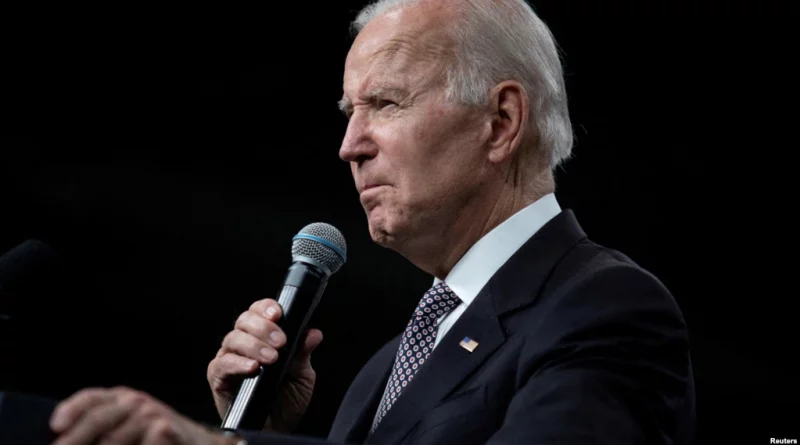Joe Biden: Nobel Peace Prize Laureates “made our world stronger”
Joe Biden: Nobel Peace Prize Laureates "made our world stronger"
The American president addressed congratulations to this year’s Nobel Peace Prize laureates, who are human rights defenders and human rights organizations from Belarus, Russia and Ukraine.
The Belarusian human rights activist Ales Belyatski, the Ukrainian Center for Civil Liberties and the Russian human rights organization Memorial “have fought tirelessly for human rights and fundamental freedoms, including the right to free speech and open criticism,” said Biden.
The U.S. president recalled in his statement that Memorial, “throughout its history, has uncovered the truth about the mistreatment of Soviet and Russian citizens, despite continuing threats against it.
Biden also stressed that Ales Bialiatski “never gave up the idea of the democratic freedoms that the Belarusian people deserve, even while in prison.”
“And in the midst of Russia’s brutal and unprovoked war against Ukraine, the Center for Civil Liberties, in real time, documented the war crimes and atrocities that Russia committed against the Ukrainian people,” Joe Biden said, referring to the merits of Ukrainian human rights defenders.
All of the Peace Prize winners, according to the U.S. president, remind us “that even in the dark days of war, in the face of threats and oppression, the universal aspiration for rights and dignity cannot be suppressed.”
“These fearless men…pushed for the truth…spoke out, stood up, and were unyielding even when threatened by those who sought their silence. They have made our world stronger by doing so,” U.S. President Joe Biden said in closing remarks.
American experts on the awarding of the Nobel Peace Prize to Ales Belyatski, the Russian Memorial and the Ukrainian Center for Civil Liberties
The awarding of the Nobel Peace Prize to two human rights organizations and Ales Belyatski shows that public opinion, in particular in the West, is on the side of Ukraine. This opinion was expressed by Donald Jensen, director for Russia and Europe of the American Institute of Peace. He added that if there were more NGOs in Russia and Belarus, the path Russia is on now would be very different.
“The awarding of the Peace Prize demonstrates that the Nobel Committee is aware of the tragedy of the Kremlin’s brutality. The fact that the committee gave the prize to three recipients is really important and is a strong condemnation of what the Kremlin is doing and also sends a message to thoughtful Russians to think about what position they are taking. – Donald Jensen believes. – It’s a testament to the place that nongovernmental organizations and civil society have in these countries. In countries like Ukraine, NGOs have played an important role not only in countering war crimes, but also in ensuring that Ukraine has not backtracked on its impressive democratic achievements and commitments over the past 10 to 15 years.”
According to him, the Kremlin’s deliberate weakening of Russian NGOs and civil society has had negative consequences.
“The tragedy of what is happening to Russia now is partly a result of the weakness of civil society there. So when you have an outstanding, wonderful group like Memorial doing such great work despite its shortcomings, it shows that if there were more organizations like that in Russia and in Belarus, maybe the course Russia is taking would be different,” Donald Jensen said.
David Kramer, director of global policy at the George W. Bush Center, welcomes the Nobel Committee’s decision.
“Ales Belyatski was simply astounding in his determination to stand up for human rights in Belarus against Lukashenko’s brutal dictatorship. “Memorial has done a heroic job of challenging authoritarianism in the present and the past. It is doing extremely important work looking back on the Soviet Union as well as defending the rights of political prisoners in today’s Russia.
The Ukrainian Center has done tremendous work in Ukraine, especially in light of Putin’s unprovoked and brutal invasion of Ukraine. Choosing these three, I think, is an inspiring choice. – Kramer thinks. – Let us remember last year’s award to Dmitry Muratov of Novaya Gazeta Someone who fights for human rights, for freedom of the press, freedom of speech, freedom of assembly, for all human values. These are not American values. These are not Western values. These are universal values. And the Nobel Committee understands the importance of these values and recognizes the heroic and courageous work of these people and these organizations.”
